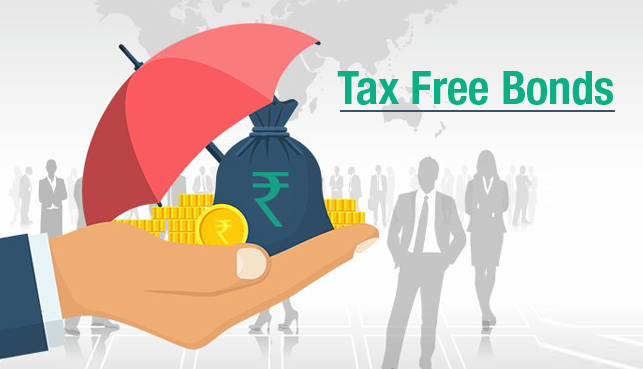Tax-free bonds are issued by a government enterprise to raise funds for a particular purpose. One example of these bonds is the municipal bonds. They offer a fixed interest rate and hence is a low-risk investment avenue. As the name suggests, its most attractive feature is its absolute tax exemption as per Section 10 of the Income Tax Act of India, 1961. Tax-free bonds generally have a long-term maturity of ten years or more. The government invests the money collected from these bonds in infrastructure and housing.
In the case of tax-free bonds, the interest income is entirely tax-exempt. Also, the tax deducted at source (TDS) does not apply to these bonds. However, it is advised to declare your interest income as tax-free bonds do not imply that you can claim the investment amount for the tax deduction. Tax-free bonds, when compared to bank FDs, offer great benefits to investors who fall in the highest tax brackets.

Tax-free bonds are an excellent choice for investors looking for fixed income like senior citizens. As government enterprises typically issue these bonds for a longer tenure, default risk is very less in these bonds and you are assured of a fixed income for a more extended period, typically ten years or more. The government enterprises invest the money collected through the issuance of these bonds in infrastructure and housing projects.
Tax-free bonds are the right choice for investors falling in the highest tax bracket. Typically high net-worth (HNI) individuals, HUF members, trusts, co-operative banks, and qualified institutional investors prefer to invest in these bonds.
Tax-free bonds have trading options that allow bond trading through a Demat account or in physical form. Therefore, investing in these bonds is simple and highly rewarding. Remember, the subscription period for the investment is open only for a specific time. You will be required to submit your PAN details when buying the physical format.
When the government releases them to the public, the investor can subscribe by applying online or offline. On the other hand, if an investor requests for the bond post-issuance, he/she can invest using the trading account. Hence, it is much similar to trading shares in a stock market.


At AimMoney Finbest Services Pvt Ltd., we truly care about our clients' goals - and we believe it shows in our attention to detail and service.
● Privacy Policy
● Terms and Conditions
104, first floor shiva arcade,
near income tax office, city center,
Gwalior M.P Pin 474011
+91 9770063555
+91 9981388555
Copyright © AimMoney Finbest Services Pvt Ltd. 2021. All rights reserved.